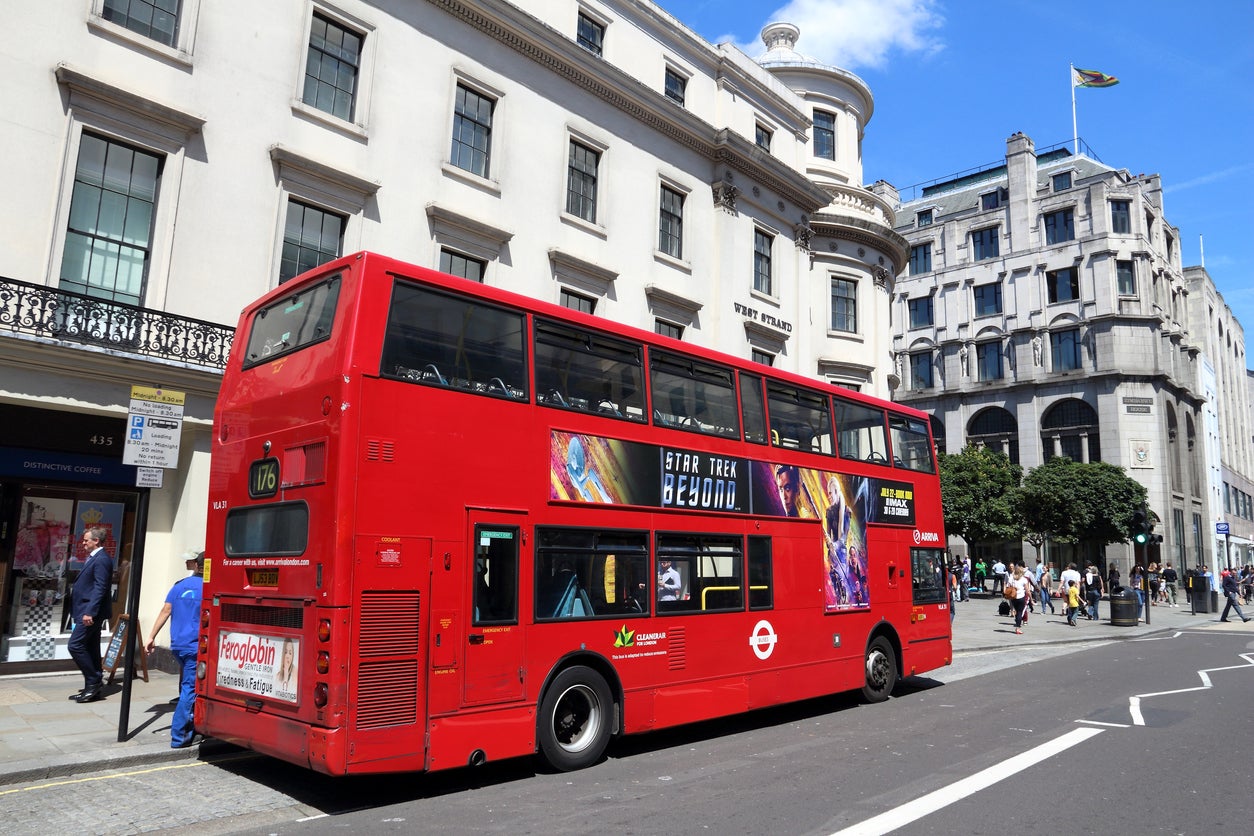What is a freedom bus pass?
The prime minister has taken credit for the bus pass some pensioners are using as a means of staying warm

Your support helps us to tell the story
From reproductive rights to climate change to Big Tech, The Independent is on the ground when the story is developing. Whether it's investigating the financials of Elon Musk's pro-Trump PAC or producing our latest documentary, 'The A Word', which shines a light on the American women fighting for reproductive rights, we know how important it is to parse out the facts from the messaging.
At such a critical moment in US history, we need reporters on the ground. Your donation allows us to keep sending journalists to speak to both sides of the story.
The Independent is trusted by Americans across the entire political spectrum. And unlike many other quality news outlets, we choose not to lock Americans out of our reporting and analysis with paywalls. We believe quality journalism should be available to everyone, paid for by those who can afford it.
Your support makes all the difference.The Freedom Pass has hit headlines after Boris Johnson took credit for it when confronted with the story of a pensioner who was riding the bus all day just to keep warm. But what is the pass and how does it work?
What is the Freedom pass?
A Freedom Pass is a special bus pass that allows free travel on certain methods of public transport. There are two types: one for people aged 66 and over primarily based in London, and one for disabled people primarily based in London.
It gives holders access to free travel on the London Underground, Overground, buses and trams, as well as some TfL Rail and National Rail services.
Who can get the Older Person’s Freedom Pass?
Eligibility depends on when you turned 60.
Those who were aged 60 or over on 6 April 2010 automatically qualify for a Freedom Pass. However, since then the age limit has gone up in line with retirement age - meaning if that doesn’t apply to you, you must wait until you turn 66 to qualify.
You must also live in a London Borough - as your principal address - in order be eligible. The passes used to be a paper ticket, but in 2004 this changed to an electronically loaded smartcard.
If you’re too young for a Freedom Pass, there’s also the 60+ Oyster Card, which offers free travel on the London Underground, Overground, trams and buses, as well as some TfL Rail and National Rail services - but can’t be used outside of London.
Outside of London, people who live in England and have reached the State Pension Age (66) can apply for an older person’s bus pass from gov.uk; in Wales, Scotland and Northern Ireland you can get a free bus pass from the age of 60.
Why are people talking about the Freedom Pass?
Boris Johnson took credit for introducing the free bus passes for pensioners after being told elderly people are using them to keep warm amid the cost of living crisis.
In an interview on ITV’s Good Morning Britain on 3 May, the prime minister was told a 77-year-old pensioner called Elsie rode the bus all day long, because she could not afford to pay for heating at home.
“[Elsie] gets up early in the morning to use her Freedom bus pass to stay on buses all day to avoid using energy at home. What else should Elsie cut back on?” said presenter Susanna Reid.
The prime minister replied: “Just to remind you that the 24-hour freedom bus pass was something that I introduced.”
Ms Reid replied: “Marvellous, so Elsie should be grateful to you for her bus pass!”
Why is Boris Johnson taking credit for the pass?
As mayor, Boris Johnson reinstated free travel for the over 60s in 2012 - although, as a 77-year-old, Good Morning Britain viewer Elsie would already have qualified for free bus travel at that time.
He did not actually introduce the Freedom Pass - rather, the 60+ Concessionary Travel Scheme. The former was first introduced in 1973, for Londoners aged 66 and over.
It is funded by local authorities and coordinated by London Councils.
Join our commenting forum
Join thought-provoking conversations, follow other Independent readers and see their replies
Comments